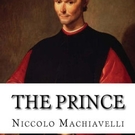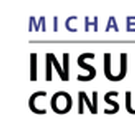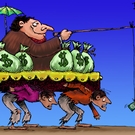During this Part 1 of 2 series, a ghost writer talks about why he sold his Ophthalmology practice to private equity and why you might want to as well.
Preface
There has been much written (and talked about) in Ophthalmology circles about how private equity has impacted our field. Many of these sources of information have no actual personal experience with the process, or are significantly biased either for or against private equity (PE) being in our field. I find that many people's opinions are based on self-validation: i.e. they want to justify whatever has happened in their lives. For example, many of those that work for Kaiser believe that their model of healthcare delivery is superior, and that anyone who owns a private practice must be swamped with administrative work on the weekends and/or they are practicing unethical Medicine. Similarly, those who were left out of the recent flurry of PE-backed acquisitions demonize PE as the "end of Medicine" or can only point out its negatives without even having personal knowledge of the acquisition details. Conversely, those who sell to PE tend to sugarcoat it to make their lives and careers seem better than reality especially if they are writing for a throwaway journal article.
I am writing just to give you my personal experience with being acquired by private equity.
Background
I am a comprehensive Ophthalmologist who performs mainly cataract surgery, LASIK, as well as a variety of other anterior segment procedures (e.g. trabs, tubes). My practice has its own ambulatory surgical center (ASC), optical shop, and a few satellite offices. We employ some optometrists and also co-manage some of our cataract surgery with referring ODs. Prior to being approached by private equity, my take home compensation was low 7-digits, so I was far from "needing" to be bought out. I am a mid-career eye surgeon, though I wish I could still consider myself a "YO" (Young Ophthalmologist)! So when PE came sniffing around, why would I consider giving up my autonomy since all the gears of my practice were chugging along? Well first of all, I was introduced to the concept by some other very prominent eye surgeons who I greatly admired for their surgical skill, ethics, and business acumen. These leaders, who were the initial acquisitions of the PE group, introduced the concept of being part of the "platform" (i.e. first ones in) and its financial benefits. Second, given the climate of ever-declining reimbursements (20% cut in surgeon fees anyone?) and the writing on the wall that we may be heading to socialized medicine, I saw a PE-buyout as an attractive hedge against future turmoil (more on this later because of COVID19). Third, the buyout amount was just too good to pass up. Sure, I could probably earn more money over the course of a long career if I retained full ownership. However, that assumption was based on two main premises:
-
I continue to be just or even more productive over my entire career. I like working, at least for now. But to assume that I would never fall ill, lose some of my energy, or just burn out was presumptuous. As you get farther into your career, you will realize there is more in Life than just eyeballs. So part of me saw this buyout as a way "out," if I ever decided to take an early retirement from eyeballs and pursue other interests.
-
I can stay disciplined and maintain the same savings rate. As most of you probably know, there is a difference between "making a lot of money" and actually being "wealthy." The former premise is based on annual compensation while the latter, more important, concept is based on how much of that compensation you actually save. When you make a lot, I believe there is a natural tendency to justify increased spending habits because you can always "make it up" by your next month's distribution. Obviously, such spending habits are not conducive to true wealth building. For me to have the same or greater amount of money (compared to the PE buyout) after "x" years of working assumes that I still have the same savings rate. I was honest with myself and doubted that I could maintain the same savings rate to achieve the same net proceeds as the PE buyout. I also knew that I would be better at saving if I had to protect a tangible nest egg (e.g. additional funds from buyout) versus saving toward a non-specific target dollar amount.
The Decision (no, I am not Lebron)
Let's be real here. The #1 reason people sell to private equity is because the numbers make sense. I was no different. I was offered an (redacted) total compensation package, which satisfied my personal financial projections. However, unfortunately for us doctors, PE groups are smart and know you will not have any motivation to work if they give you the entire amount in cash upfront. Thus, most firms will pay you a certain percentage in cash upfront (e.g. 60-75%), with the remaining balance spread over 3 to 5 years contingent on some benchmarks (e.g. >80-90% of current revenue). Alternatively, the deal can be structured so that a certain overall percentage is cash (e.g. 80%) with the remainder (e.g. 20%) given in stock in the newly-formed mega practice. This latter structure incentivizes the doctor-seller even more to keep working hard, because some of his/her payout is tied to the mega practice doing well with the hopes of being acquired by an even bigger fund at a premium. This "second bite" theoretically can increase the value of one's shares by 20-30% leading to an even larger total compensation. One thing that people sometimes do not realize is that everything is negotiable. I rejected the PE's first offer and managed to obtain a total compensation package that was 33% more!
The Mechanics
After the due diligence satisfies the PE group's expectations of the financial health of the company, then comes the drawing up of the real transaction documents. This will also represent the longest phase of the process as every detail can be (and probably should be) negotiated. Basically, every possible scenario will be spelled out; for example:
-
What happens if revenue falls below a certain threshold and how that affects a seller's "earn out"?
-
What happens if an employee-optometrists quits? Is the PE firm obliged to replace that person and how does that affect the doctor-seller's thresholds?
-
Specifics on non-compete terms.
-
What happens if the bank that the PE uses to fund its deferred compensation refuses to lend money? What happens if the PE firm goes broke?
-
What is the "allocation" breakdown of this sale (i.e. what percentage is considered "goodwill" which is taxed at capital gains rate for the seller)? For example, >90% of my sale was allocated to goodwill.
-
Who will receive the current Account Receivables? Who will pay the outstanding Account Payables? How much "working capital" will need to remain in the company's bank accounts during the transition period? How much of this capital will be distributed back to the sellers and when?
The (Anti-) Climax
Want to get more from OphthoQuestions?
Related Posts
-

Top Things I Wish Residency Taught Me
-

What You Should Do With Your First $50,000
-

Why I Left Kaiser (and Why You Might Want To)
-

Why I Chose a Career in Ophthalmology with Kaiser Permanente
-

Top Mistakes and Red Flags When Considering a Job in Ophthalmology
-

How Much Will I Earn Throughout My Career?
-

A Guide to Private Disability Income Insurance for Ophthalmologists
-

Working as a Physician Employee in Private Equity





Please login to comment.
Low 7 figure take home=. Assume $1 million
Gross income @ $ 2 million using 50% tax rate
Let's assume Doc is Uber efficient and has over head of 50%= Gross of $4 million
PE offers 5x to 7x earnings if an ASC is in the mix=. $ 20-28 Million. $12-$15 million cash upfront & $10-13 on the back end assuming all bench marks are met.
No ASC ...PE will not look at you.
PE model is to flip the practice at 5 yrs for 5 times what they paid. How many times do you think they can do that with a medical practice?
FYI: PE gravy train is limited... Due to diminishing reimbursements from insurance. The only thing floating practices is premium IOL's. If economy tanks... So do premium IOLs and PE deals.
P.S. I have an Ivy League MBA